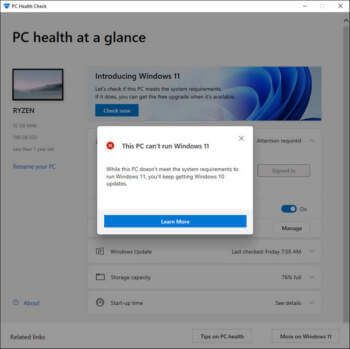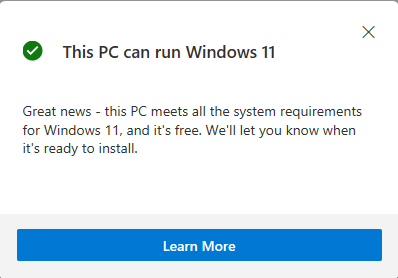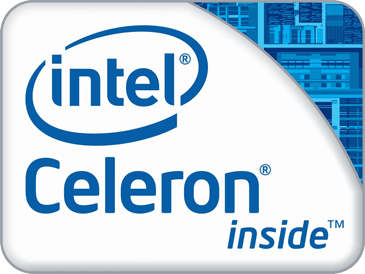
Windows 11 isn’t coming to a PC near you!
Having glossed over the debacle which was Windows 8 and straight to Windows 10, leapfrogging the seemingly evil number nine, Microsoft has decided that we all need their shiny new toy, Windows 11. On first hearing about the new OS, I was a little excited but not overly so. Windows 10 is a refined operating system, but then, being a tech addict, I am attracted by shiny new systems and it’s inevitable that I will upgrade to the new Windows eventually.
At least that was my thinking before I discovered two major obstacles facing millions of Windows users — TPM 2.0 and CPU compatibility.
What is TPM?
TPM, or Trusted Platform Module, is a hardware chip that is integrated into CPUs and motherboards. The chip essentially offers a hardware level barricade, instead of just software based segregation of accessible data on your PC.
From what I can gather, the biggest benefit of TPM is to prevent ransomware attacks, where the attacker is prevented from encrypting your data. I know this because I was once a victim of ransomware, and it’s very nasty indeed. But this stipulation is different; Microsoft is insisting on TPM hardware for any Windows 11 installation and I was dismayed to find that my main gaming rig was deemed a pile of junk by the so-called PC Health Check crap that I ran, as you can see from the top image. I then went into the UEFI and enabled TPM, which then gave me a pass result on Microsoft’s silly little app. But millions of Windows users will be running systems on motherboards that are not equipped with a TPM module. In fact, I run a secondary system for work with a Gigabyte GA 990FXA-UD3-R5 motherboard without TPM and an FX 8350 CPU, so I’m doubly screwed.
Oh whoopee, Microsoft! But that’s not the whole story, not by a long shot. What the company has now unleashed is an army of scalpers buying up TPM chips to sell on to the highest bidders. Surely this is precisely the scenario any sensible tech company would wish to avoid? Most of us are well aware of the disastrous GPU and general chip shortage provoked by scalpers and crypto-miners, on top of which we’ll now have to deal with a TPM shortage.
Your CPU probably isn’t compatible with Windows 11!
I rather hope that Microsoft will be shifting its position in the coming weeks, or maybe even days. If you take a look at their preposterous minimum specifications page for Windows 11, you’ll find that you need:
- 1GHz dual-core CPU
- 4 GB RAM
- 64 GB storage
- UEFI, Secure boot capable
- TPM version 2.0
- GPU with DirectX 12 and WDDM 2.0 driver
I call it preposterous because it doesn’t come anywhere near the real truth which is that the majority of PCs won’t be able to even install Windows 11 because their motherboards don’t have the TPM (module) hardware installed and to top it all off, their CPU (processor) isn’t compatible. The compatible CPU list that Microsoft has issued even excludes processors that were launched only four years ago. For example, Ryzen 3, 5, and 7-1200/1300/1400/1500/1600/1700/1800 first generation processors launched in 2017, not to mention the FX range launched in 2011 are not up to par, according to Microsoft. Amazingly, the Intel Atom x6200 and Celeron G4900 range of CPUs are entirely compatible, even though you’d probably find more power in your average toaster than one of those potatoes. Rather surprising therefore, that an AMD FX 8350 8 core 4.0GHz CPU is now deemed obsolete junk by Microsoft.
To add insult to injury, the requirements page goes on…
…you may not be able to install Windows 11 on your device and might want to consider purchasing a new PC.
“Erm, hang on. But I only built this PC a couple of years ago and now you’re saying that I have to buy a new one? Added to which, there are six computers in my house, out of which only two will run Windows 11!”
This is a scenario which will be common to millions of PC users, something that Microsoft seems to be ignoring. Furthermore, we have all had to cut back severely on our spending due to layoffs, furloughs and the economic disaster created by the pandemic. Again, completely ignored by the boffins in their ivory towers at Redmond. In my house alone, we have five PCs and a laptop, of which only two will be able to run Windows 11. Heck, I’ve even installed Windows 10 on an ancient Athlon 64 with 2 GB of RAM, such is that OS’s true flexibility. In fact, I have no doubt that, were these ridiculous restrictions lifted, that Windows 11 would also run on a humble Athlon, after all, it is a reskinned version of Windows 10.
This so-called launch, which by the way was as dull as ditch water, was also accompanied by words from Satya Nadella, CEO of Microsoft:
Throughout its history, Windows has been a democratising force for the world…
I applaud Microsoft for not allowing Windows to stagnate, but it’s hardly democratic to exclude millions of PC users from upgrading to their new operating system. Frankly, their recent decision-making beggars belief and one can only hope that common sense will prevail in the boardroom at Microsoft Towers, but I’m not optimistic.
—




I see a lot of perfectly good running PC’s that will either be discarded or the owner
will use a dual boot with Linux and keep using the machine.
Fantastic article Marc, as always. And I agree 100% with everything you’ve said.
Thanks, Jim
I expect the plot will thicken as time goes on.
Marc, Microsoft has been a mess in its history. I have been using Microsoft since 1989. Therefore, I am familiar with Windows 3.0, 95, 98, 2000, Millennium, XP, Vista, Windows 8.1, and Windows 10. Within my experience, I started to prefer Linux Debian because of the open source and ability to edit as wanted vs Microsoft. Then the start of Linux Ubuntu in 2006 started the process of reducing the use of Microsoft for Linux and because of Amazon the start of Cloud. Even Microsoft started getting involved with Cloud shortly after and providing Linux because they were aware of the problems with their Microsoft Server OS’s inability to edit for client needs. My theory is that Microsoft will have to change to Linux style and flexibility for clients to edit as they desire as open source. Otherwise, It will have it’s fall because it needs a balance of flexibility.
If you read this article you can only come away believing that without Windows 11, life as you know it will come to an end. Horse-pucky. Windows 10 will still be supported for years to come. You can still use those legacy computers. You don’t always need the latest greatest shiny thing from Microsoft.
My company has an application that requires Internet Explorer 11. That’s gone in Windows 11. That means not one of our machines will be upgraded in the foreseeable future. Business will continue. Product will still be sold. And I’ll still get a pay check.
Cool your jets. You’ll be fine. Trust me. I’m a professional.
Very well said, Scott. I have a business associate whose computer crashed and was recently forced to update from Windows 7 to Windows 10. Now the IT guys are struggling to get all the corporate stuff reconfigured.
If Windows 11 is going to be a more difficult transition, I can see a lot of businesses sticking with the old for many years into the future.
Just checked the official product web page having a AMD FX 8350 8 core 4.0GHz CPU. Good new it currently states ‘Microsoft will continue to support at least one Windows 10 release until October 14, 2025’. That should see out my current motherboard and CPU.